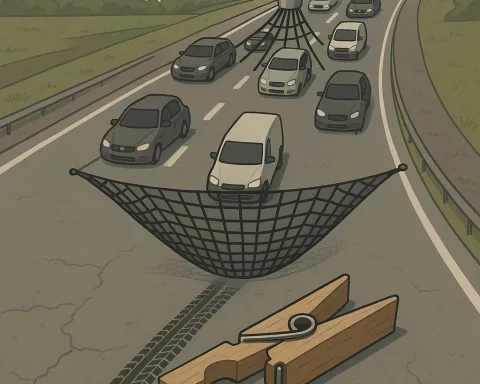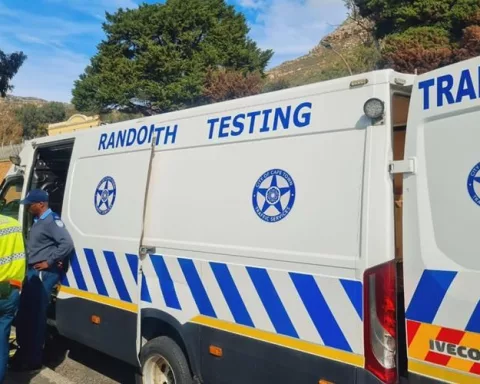The Western Cape Government is taking big steps to keep schoolchildren safe on the roads by offering free vehicle safety checks for those who transport students. These checks, which look at important things like brakes and tyres, aim to prevent accidents and make sure all vehicles are safe for kids. Following a tragic accident that highlighted the need for better safety, this program invites transport operators to get their vehicles tested at convenient locations. By caring for young learners’ safety, the initiative shows a strong commitment to community responsibility and sets a shining example for others to follow.
What is the Western Cape initiative for scholar transport safety?
The Western Cape Government’s initiative provides free vehicle safety checks for scholar transporters to enhance road safety for schoolchildren. Inspections cover critical components like brakes and tyres, and aim to reduce accidents, ensuring the safe transportation of students in the region.
A Pioneering Initiative for Scholar Transport
In the dynamic environment of the Western Cape, a significant effort emerges to prioritize road safety and secure the well-being of schoolchildren. The Western Cape Government has launched an initiative offering free vehicle safety checks for all scholar transporters. This program, hosted in key locations like Cape Town and Malmesbury, underscores the region’s dedication to protecting young learners. As a part of a larger campaign, these inspections aim to maintain high safety standards for vehicles tasked with ferrying students to and from school.
The vehicle inspections, scheduled from 8:30 a.m. to 3:00 p.m., highlight the government’s proactive approach to ensuring road safety. The checks cover a comprehensive array of safety components. Vehicles undergo detailed assessments of tyres, brakes, lighting, suspension, constant velocity (CV) joints, electrical systems, exhaust systems, wipers, and license plates. This thorough evaluation seeks to guarantee a safe and dependable transport service, emphasizing the critical importance of vehicle roadworthiness. Scholar transport providers are strongly encouraged to utilize this free service, presenting a valuable opportunity to pinpoint and address potential safety threats that could jeopardize vehicle integrity and, most critically, student safety.
Urgency and Lessons from Tragedy
The initiative gains additional urgency and significance in light of a recent tragic event. A heartbreaking accident occurred in Mitchells Plain, where a 16-year-old girl lost her life when a taxi overturned. The overcrowded Toyota Quantum was carrying 28 passengers, flipping onto its roof near Swartklip Road. Such tragedies highlight the essential need for regular vehicle maintenance and strict adherence to safety regulations. They serve as a somber reminder of the potential consequences of neglecting these responsibilities, intensifying the demand for rigorous safety checks and accountable vehicle operation.
Muneera Allie, a spokesperson for the Western Cape Mobility Department, emphasized the importance of responsible vehicle operation to prevent road accidents. Allie noted that maintaining vehicles in top condition plays a significant role in reducing collisions and breakdowns. The department’s initiative serves as a potent reminder that the safety of learners must remain a top priority. It underscores the necessity of regular vehicle maintenance, particularly for those who undertake the critical task of transporting children daily under diverse and often challenging road conditions.
Strategic Locations and Community Engagement
Choosing venues like the Gene Louw Traffic College in Brackenfell and the Swartland Testing Centre in Malmesbury, the initiative reflects a strategic emphasis on accessibility and convenience for transport operators. These sites, open from 8:30 a.m. to 3:00 p.m., offer a structured environment for thorough vehicle inspections. Furthermore, the initiative encourages open communication, inviting transport operators and interested parties to contact the relevant authorities for more information about the free vehicle testing services.
This program not only responds to recent incidents but also acts as a proactive measure consistent with broader historical and cultural trends. Throughout history, the significance of safe and dependable transportation has paralleled societal growth and development. Since the advent of the automobile in the early 20th century, safety concerns have continually influenced automotive technology and transportation policies. The Western Cape’s current efforts echo this historical trajectory, highlighting the enduring importance of safety in modern transportation.
Safety, Social Responsibility, and Community Values
Moreover, the initiative reflects an understanding of the intersection between transportation safety and social responsibility. The government’s approach acknowledges the broader societal implications of transportation safety, especially in safeguarding future generations. By prioritizing the safety of scholar transport vehicles, the Western Cape Government demonstrates a commitment to not only protecting individual lives but also fostering a culture of responsibility and vigilance within the community.
In the context of artistic movements, this initiative draws a parallel to realism, which emerged in the mid-19th century. Realism focused on depicting everyday life with authenticity and precision. Similarly, the Western Cape Government’s initiative emphasizes practical and realistic measures to enhance safety, choosing tangible, actionable steps over theoretical approaches. The inspections symbolize the government’s dedication to addressing real-world challenges with pragmatic solutions.
Beyond the immediate scope of vehicle inspections, the initiative prompts reflection on the broader implications of road safety in contemporary society. As urbanization and population growth continue to shape the Western Cape, the demands on transportation systems grow increasingly complex. Ensuring the safety of scholar transport vehicles becomes not only a logistical necessity but also an ethical imperative, demanding ongoing vigilance and adaptation to evolving challenges.
A Model of Progress and Accountability
The Western Cape Government’s initiative stands as a beacon of progress and responsibility, weaving together historical awareness, social consciousness, and practical action. By prioritizing the safety of young learners, it sets a standard for other regions to follow, reinforcing the critical importance of road safety in nurturing a secure and prosperous society. As the initiative unfolds, it offers a hopeful vision of a future where every journey is safeguarded by a collective commitment to excellence and care, resonating with the timeless values of community and shared responsibility.
FAQ: Scholar Transport Safety Initiative in the Western Cape
What is the purpose of the Western Cape Government’s scholar transport safety initiative?
The initiative aims to enhance road safety for schoolchildren by offering free vehicle safety checks for scholars’ transporters. It focuses on crucial components, such as brakes and tyres, to prevent accidents and ensure the safe transportation of students.
Where can transport operators get their vehicles safety checked?
Transport operators can get their vehicles inspected at key locations like the Gene Louw Traffic College in Brackenfell and the Swartland Testing Centre in Malmesbury. These inspections are available from 8:30 a.m. to 3:00 p.m., making it convenient for operators to access the service.
What key components are included in the vehicle safety checks?
The vehicle safety checks encompass a comprehensive assessment of essential safety components, including tyres, brakes, lighting, suspension, constant velocity (CV) joints, electrical systems, exhaust systems, wipers, and license plates. This thorough evaluation aims to ensure that the vehicles are roadworthy and safe for transporting children.
How does this initiative respond to recent road safety incidents?
The initiative was launched in light of a tragic accident in Mitchells Plain, where a young girl lost her life due to unsafe vehicle conditions. Such incidents underscore the urgent need for regular vehicle maintenance and stringent safety regulations, prompting the government to take proactive measures for scholar transport safety.
What can transport operators do to ensure ongoing vehicle safety?
Transport operators are strongly encouraged to utilize the free vehicle safety check services provided by the Western Cape Government. By regularly inspecting and maintaining their vehicles, they can identify and address potential safety threats, ensuring the integrity of their transport services and the safety of the children they carry.
How does this initiative reflect broader community values?
The scholar transport safety initiative embodies the Western Cape Government’s commitment to social responsibility and community welfare. By prioritizing the safety of young learners, the program fosters a culture of vigilance and accountability, reinforcing the importance of protecting individual lives and promoting a secure environment for future generations.












